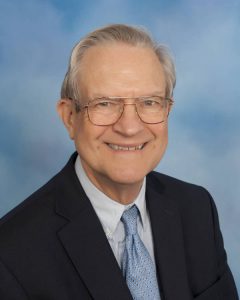By Steve Moran
This is the start of a new series at Senior Living Foresight. I am constantly stressed that I can’t interview as many people as I would like. I borrowed this idea from a friend of New York Times writer Paula Span (with permission of course).
Jack Cumming is an actuary. Since 2006 he has lived in a CCRC in Southern California. He is passionate about and an expert on the effectiveness and financing of senior living options. He is also a valued, even revered part, of the Senior Living Foresight team.
1. What is the most important leadership lesson you have learned?
It’s more blessed to listen than to command. People don’t do what you expect. They do what you inspect. And if they don’t do what you expect, find out why not. They may know something you need to know.
2. What has surprised you most about being a leader?
Most people don’t want to be leaders because they fear the responsibility that comes with it. Others assume leadership positions but then don’t lead for fear of the responsibility of acting. Great leaders accept responsibility and learn from their mistakes.
3. What is the best leadership advice anyone ever gave you?
A low-level employee once said to me, “Be careful what you say. You don’t realize the influence you have on people.” That was sobering. Leadership requires the acceptance of responsibility beyond the obvious and, especially, for unintended consequences.
4. When you are faced with impossible challenges where do you find strength?
All you can do is to face challenges with the totality of the ability that God has given you. If you give your all, you can rest easy knowing you’ve done your best. Often, impossible challenges prove relatively easy once you face them squarely. Others, which seem more difficult, usually succumb to courage and perseverance.
5. If you were to compare yourself with a historical, movie, or storybook character as a metaphor for how you lead who would it be and why?
That’s a tough one. There’s how I wish I were, which is in conflict with how I really am, so perhaps that is most like the Biblical Paul who wrote, “I do not understand what I do. For what I want to do, I do not do, but what I hate I do.”
I try to be helpful but that is not always received as intended. Perhaps that’s the nature of complex truths. The way people view their own best interests differs widely from person to person. I believe that a leader should put the common good above personal needs.






